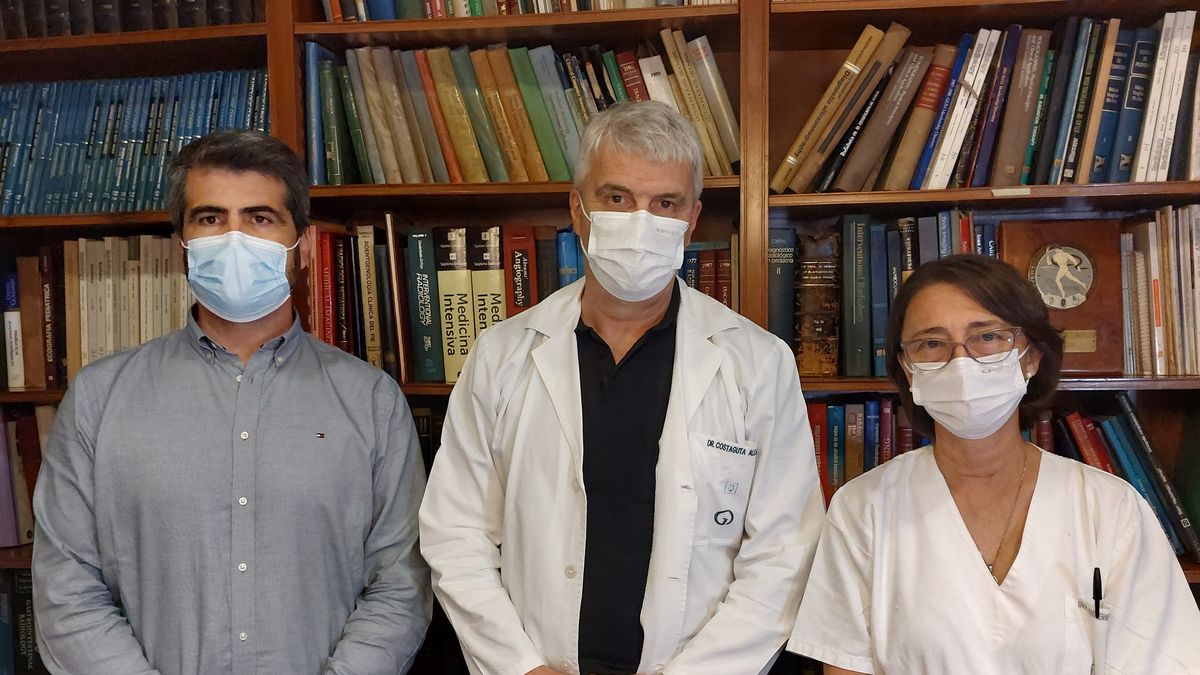During May, Pablito, an 8-year-old boy from Rosario, suffered severe hepatitis and had to be transplanted. Three doctors from the Children’s Sanatorium, Alejandro Costaguta, head of the Liver and Transplant Unit; Sergio Plaza, coordinator of the Anesthesiology Service; and Griselda Gutiérrez, head of Intensive Care, recount the case and talk about organ donation in this interview.
–
-How was the procedure since you learned that there was a boy who possibly had to receive a transplant?
–
Alexander Costaguta – We met with the members of the team responsible for making decisions on this case and we agreed to proceed with the transplant. From there, a complex mechanism is triggered in which the different members of the team dedicate ourselves to specific tasks. Pablo came out of the surgery very well, that gave us a great relief because the first goal was for him to come out of the operating room well.
Sergio Plaza – We are a team that coordinates when the transplant operation arises. This implies a process of preparation and evaluation of the case to provide the best conditions throughout the surgical procedure, which takes several hours, and has several critical moments that must be anticipated and tried to control.
Griselda Gutiérrez – When you receive it, the first thing you do is assess how deep the liver failure is, which is very subtle and it takes a lot of work to realize when the patient is in a critical stage. You have to act quickly because it deteriorates a lot. In Pablito’s case, it seemed that he was stabilizing but in 48 hours he deteriorated a lot, he needed mechanical respiratory assistance and an amount of care that can only be done in intensive care.
-How is the communication with the family of the transplanted child?
Alejandro Costaguta – The family knows that something is wrong. There is a moment when evolution reaches a critical point where there will be no possible recovery, and the only way is to remove that organ that is hopelessly ill and replace it with a new one. It is a daily job, a path that we walk together showing him that, although there is bad news, there is hope as it was in the case of Pablito.
Sergio Plaza – We talked to the parents to explain to them in relatively basic terms what we are going to do and what could eventually happen. They have to know that it is a risky procedure where they have to give their approval. We always have contact with the parents, we try to explain to them what the situation is and we also try to make them feel contained. It is quite a difficult time for them.
Griselda Gutiérrez -We have daily contact because we give two scheduled reports and, in relation to the evolution of the patient, we add more depending on the boy’s condition. In the contact, one tries to inform them how a child like Pablito, who until not long was sitting, talking or drawing, a few hours later ends up as an intubated patient, with permanent assistance from the intensive care team and in a coma.
-What sensations remain after this successful procedure?
Alejandro Costaguta – The medical profession has that economically intangible remuneration, which is to feel part of a healthy moment, to recover a life or a person who is at risk. It is a satisfaction that is difficult to share but that is experienced on a personal level. For the Children’s Sanatorium, it meant showing that one is up to the challenges that are set before it and that it responds with expertise and professionalism.
Sergio Plaza – Each procedure is a challenge. That everything goes well is the satisfaction of a duty fulfilled. Seeing everything that one has prepared motivates one to get ahead and continue working on something that is sometimes stressful but gives you the full satisfaction that, after seeing the results, it is worth it.
Griselda Gutiérrez – Despite the fact that the cases are repeated, each one of them is very moving and one cannot remain oblivious to the family’s pain and the boy’s evolution. For the transplant team, seeing how Pablo is doing today is a huge joy. And with each patient the same sensation is repeated.
-This case had the particularity that it became very mediatic, do you think it serves to raise awareness about organ donation?
Alejandro Costaguta – The work was done in the professional manner that required it and we managed to shield the family as much as possible, who were exposed as they went out to the sidewalk and the journalists were there. There is no doubt that they felt the pressure but there is also gratitude because this allows people to become aware of the donation. If it serves to make people realize how necessary donation is, and that without donation there is no transplant, then everything that happened is welcome. If there are no complications, they can lead a normal life. We have women transplanted at the age of 15 who have been mothers more than once, athletes, university students, professionals… life has to go on without problems.
Sergio Plaza- Donating organs saves lives and we have to think that we never know when we may need one, or a loved one. We are providing help to someone and at some point we may be the ones who need it.
Griselda Gutiérrez- From therapy I see the other side, which is the patient who is going to become a donor. With the current information, the people themselves ask us when they know that from the medical point of view we cannot grant them any curative solution.
–

